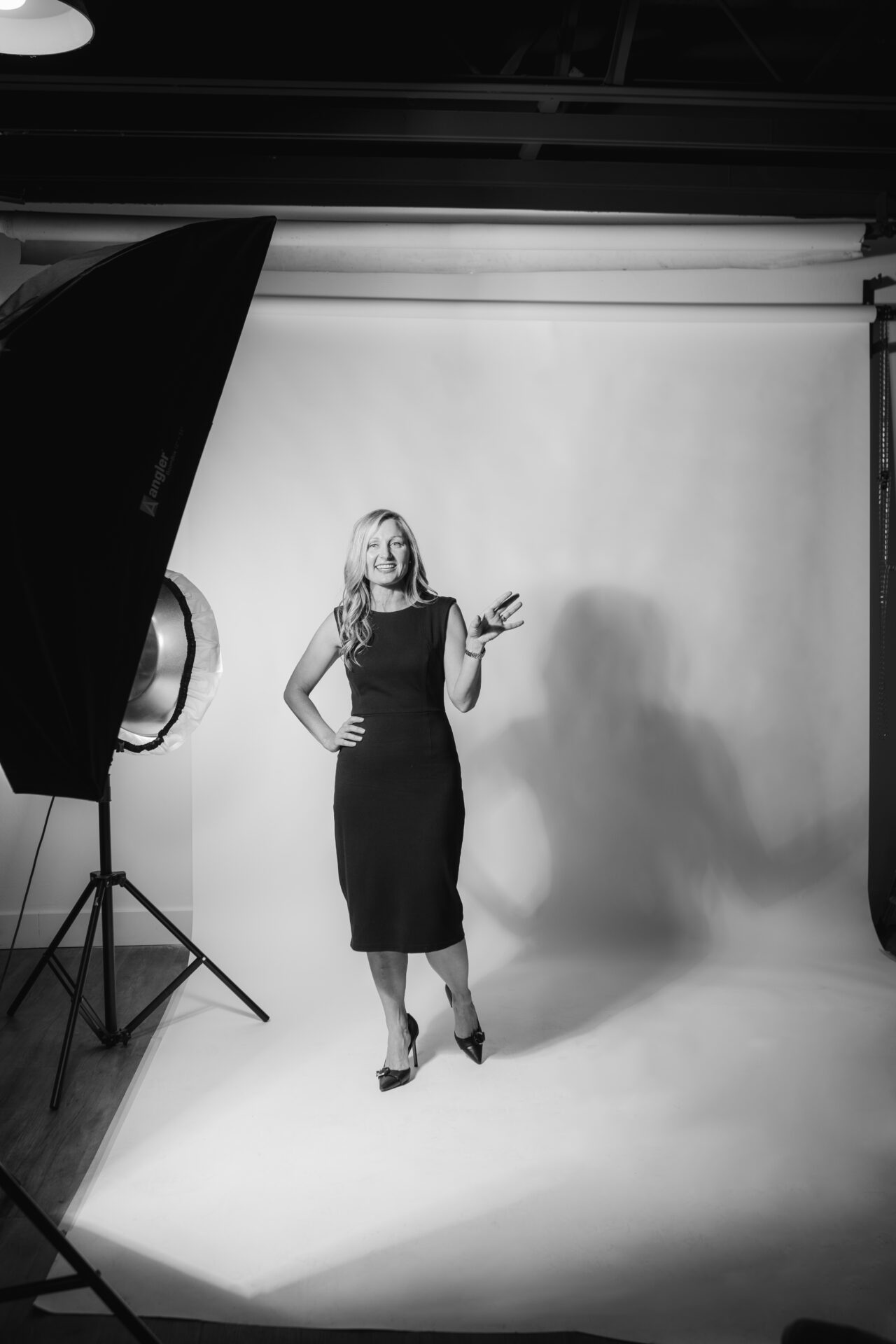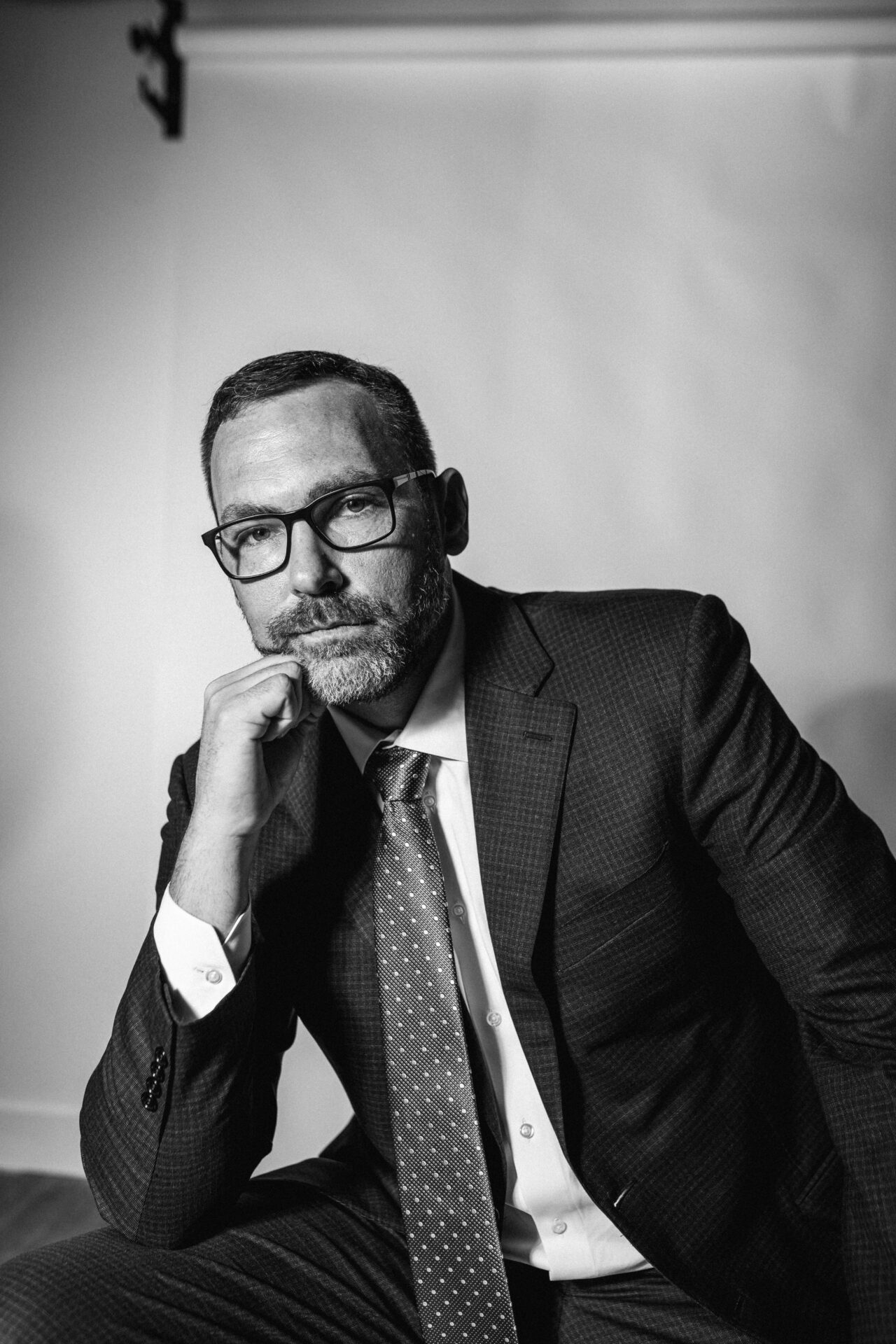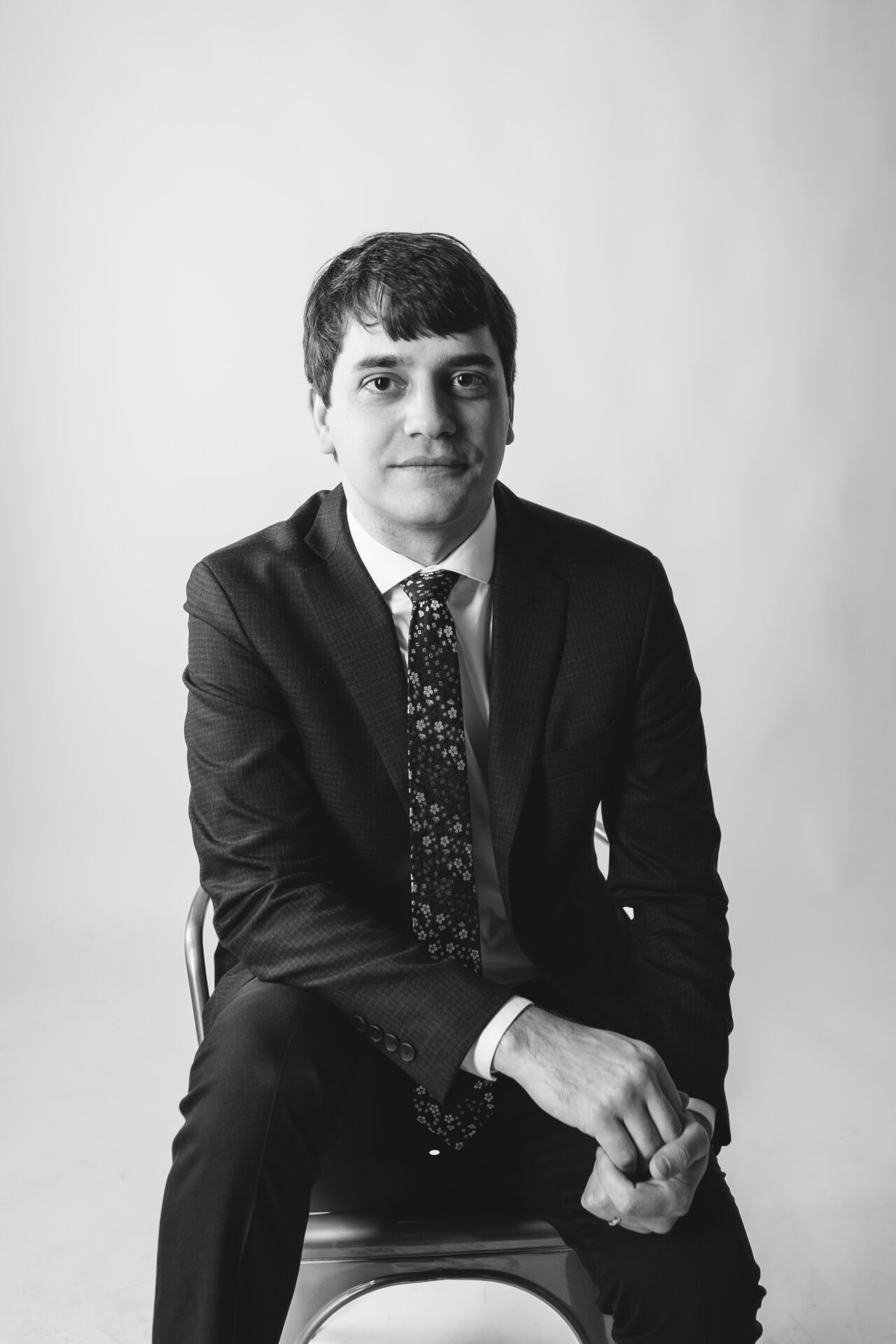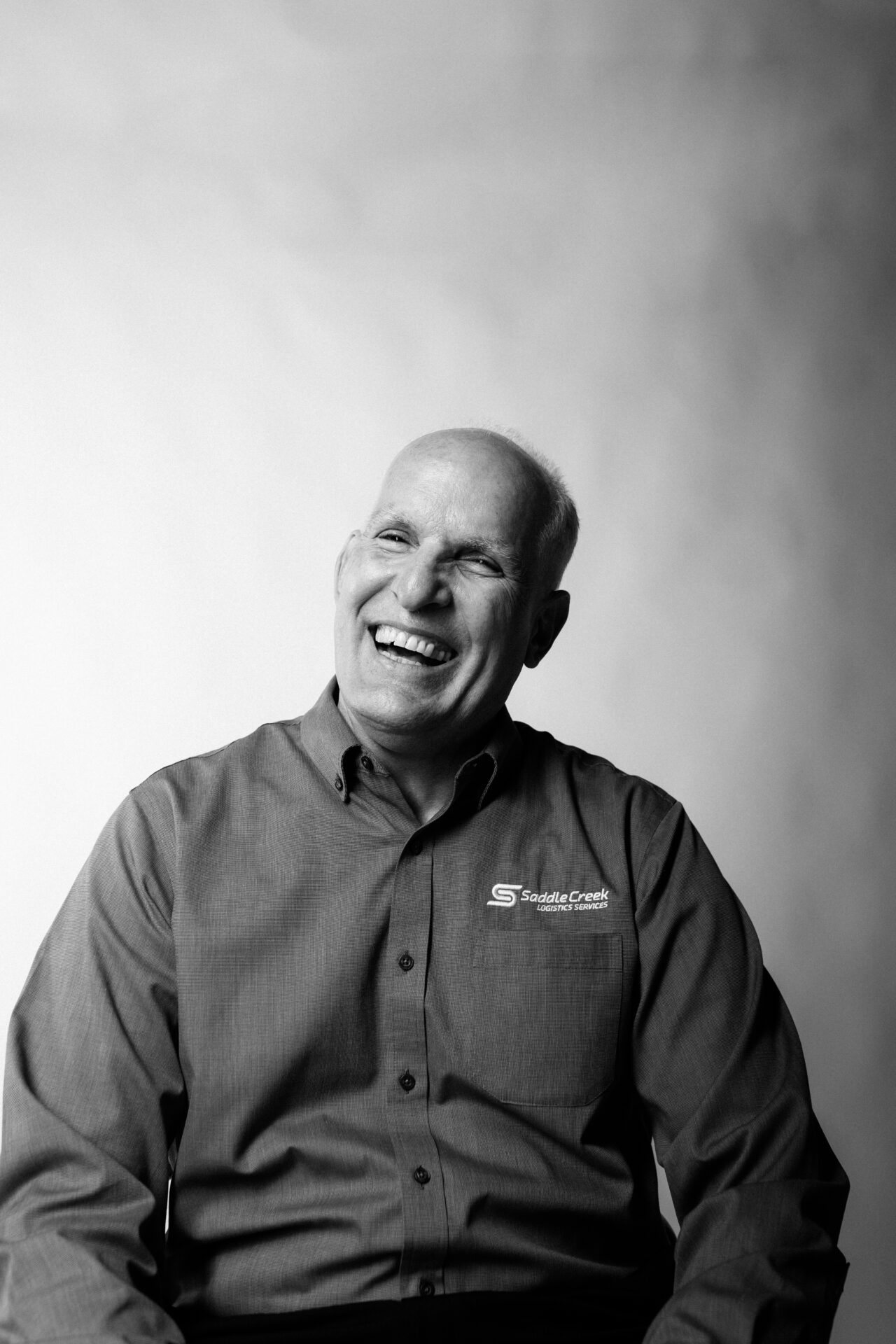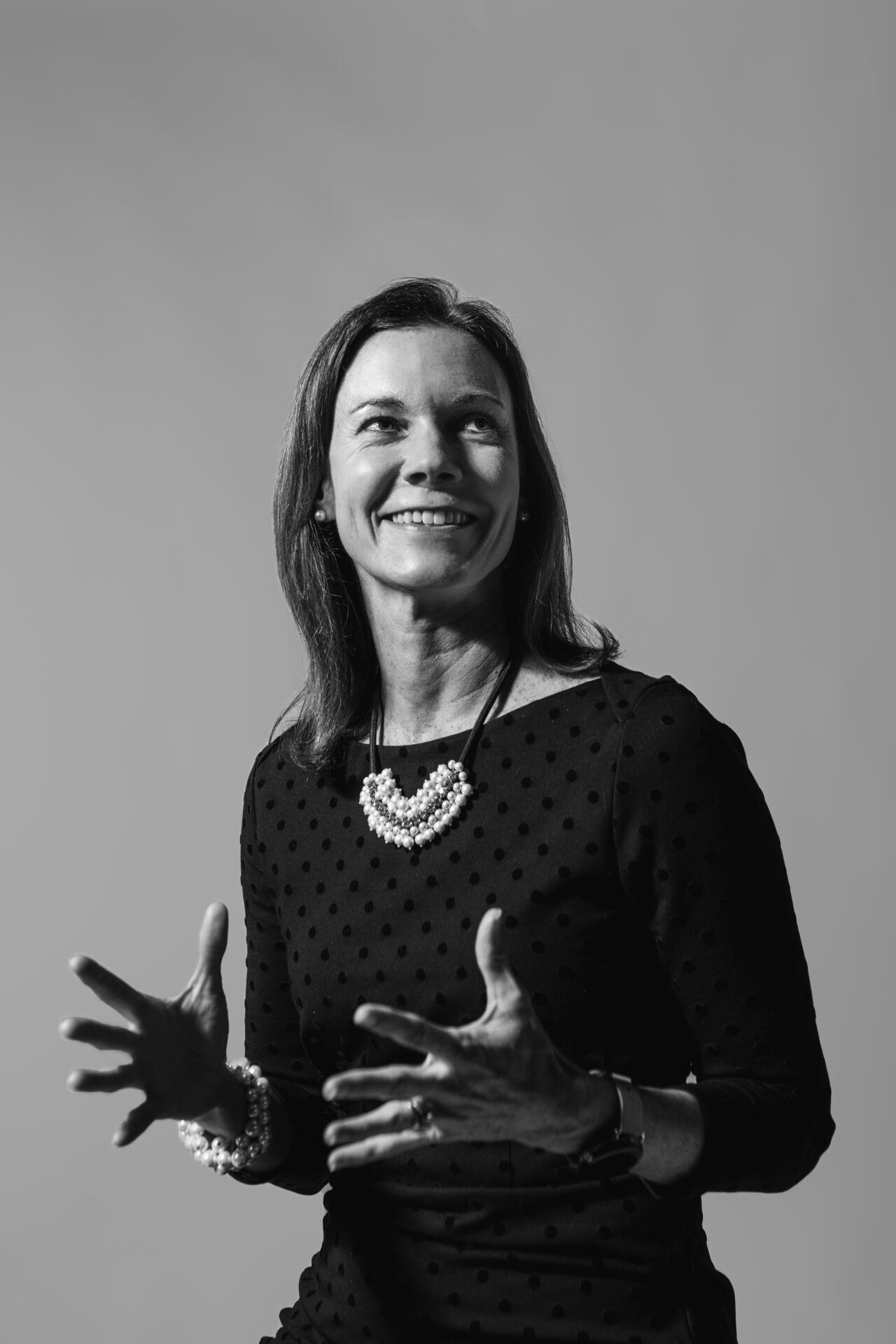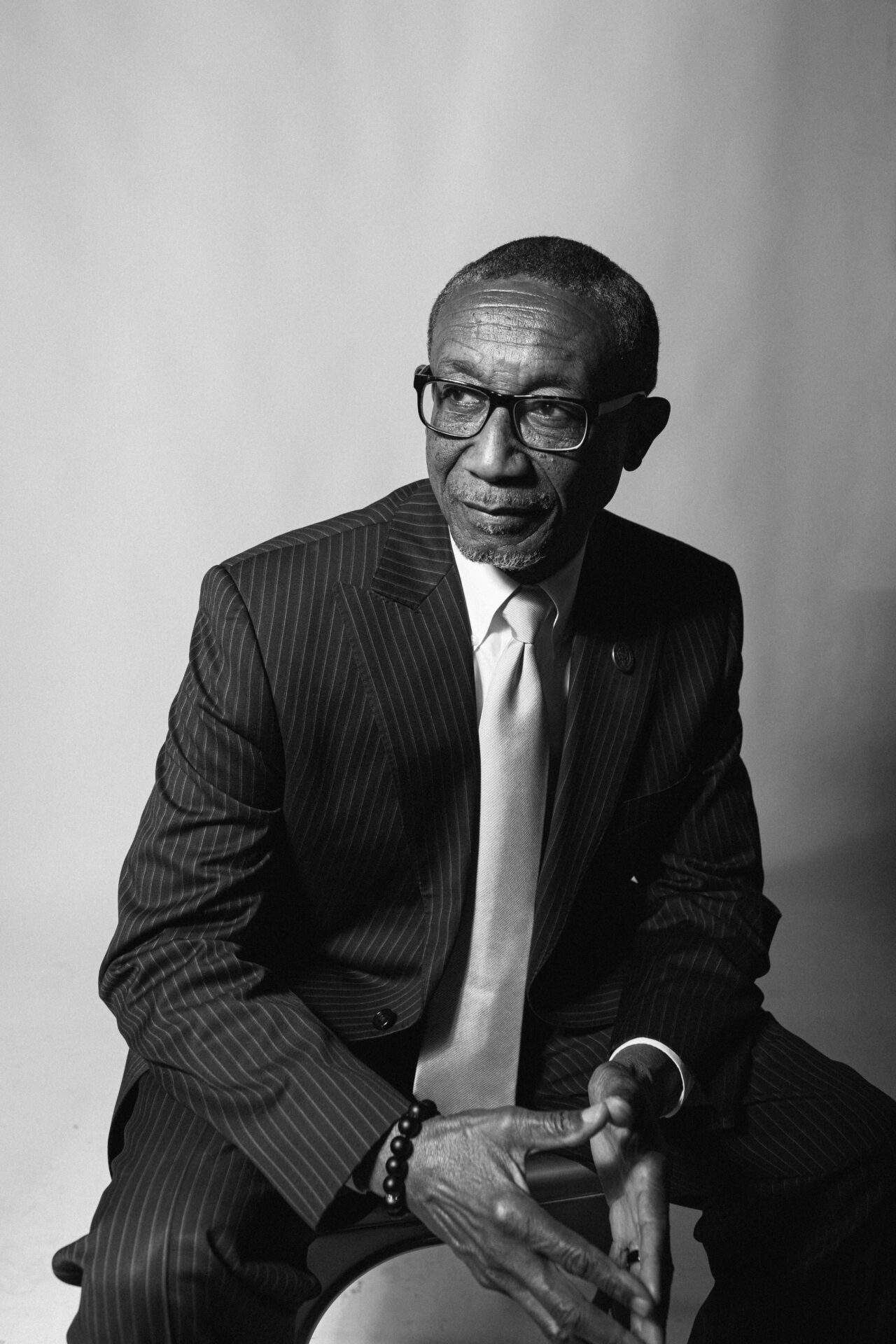Katie Worthington Decker
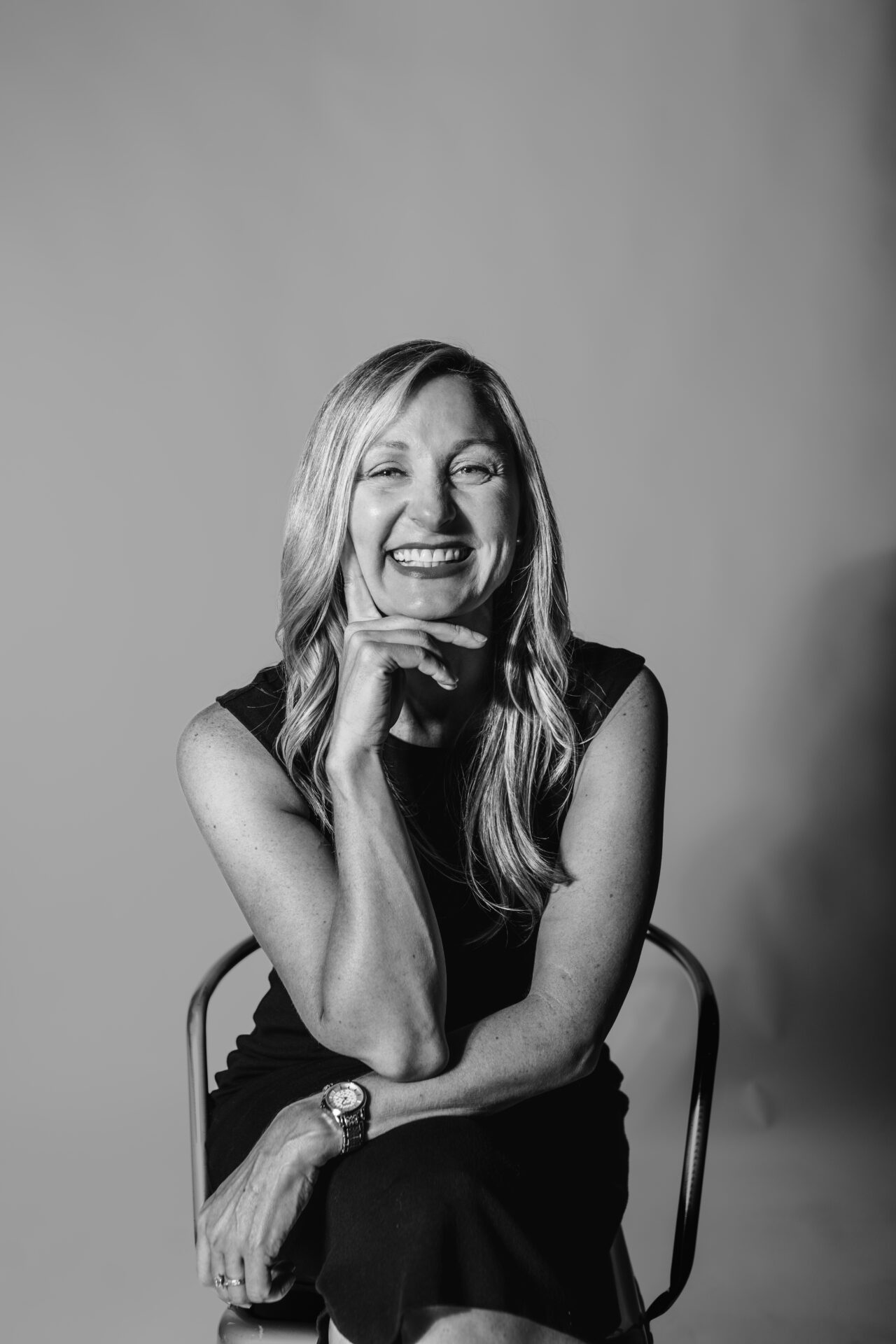
If you sit with Katie Worthington Decker for more than five minutes you will realize she is lively, she is motivated and she believes that Lakeland’s finest future is one where more people are actively using their gifts instead of just talking about what could be done better.
She’s also not afraid to admit that the mantra of her generation was seemingly “we are never coming back to Polk County” after high school graduation—and just maybe, time and reality has proven that mantra comical, especially because it’s her job to help recruit people to come and stay in Lakeland.
She jokes that many of her friends, especially in the PR world that she was familiar with in previous roles with Clark Nikdel Powell and as the President/CEO of the Winter Haven Chamber of Commerce, always talked about going to places like Austin, Texas or New York City to fulfill their dreams. But she has heard on numerous occasions that people chasing those dreams sometimes end up in singular roles that can be repetitive, while she came back to Polk County and had the opportunity to develop a well-rounded repertoire of skills.
“I was working with people buying ads, and we were working with photographers. I was doing video, I was doing media buying, and I was doing photo shoots and hiring models,” she recalls. “I was getting this breadth of experience in this really tertiary market where I got to build a portfolio.”
And now, the daughter of Terry Worthington, former President of the United Way of Central Florida, is helping build the city’s portfolio of businessmen and women through development projects, as well as programs, such as the Summer Leadership Program.
THE INTERVIEW
The Lakelander
Whenever you think of the idea of smart growth or intentional growth, what does that look like for Lakeland from your vantage point at the EDC?
Worthington Decker
I think we have to not be in denial that people are going to move to our area. We all love our area for certain reasons and other people are going to love our area for a lot of those same reasons, right? Our central location, our relative affordability, [being] pro business, both from a state perspective as well as from a local perspective. We love job creation and we certainly love high-skill, high-wage job creation. So we are going to be attractive. We cannot be in denial and just shut the doors to Florida or Polk County. So using a word you just said, intentionality around how we grow is really important, and also realizing where the strengths and weaknesses of our infrastructure is in that.
Traffic is people’s biggest concern…what are the mechanisms that we can be doing to address that? And part of that is roads and infrastructure and concrete and things of that nature. Part of its data-driven light timing, what’s our roadway network look like, that sort of thing. I think just being as proactive as we can be in a situation where we’ve been made to be a little reactive. And what I mean by that is we were experiencing percentages of growth every year, and then COVID happened, and that growth accelerated at a much greater pace than even the accelerated growth that was being projected. We just have to be honest and get after it and figure out how to creatively finance, leveraging whatever resources are available.
The Lakelander
To your point, I think a lot of times it is infrastructure people are complaining about or saying isn’t necessarily helping their quality of life. What are some things infrastructure wise specifically that the EDC working on right now?
Worthington Decker
I would say we work very closely with the city of Lakeland for sure. And we highly value the relationship with the city of Lakeland, and we have an incredibly talented and passionate team in many of the department heads over there. I would say road infrastructure is very important; I would say wastewater infrastructure, which is not the sexy thing to talk about, but everybody wants to be able to flush a toilet.
When I go to speak to Kiwanis or [Rotary clubs] or groups, I often talk about the need for density. And people don’t like that word, but they also don’t like sprawl because sprawl is taking greenfield and creating neighborhoods and all of that. You have to have a mix in inventory in housing and residential and office and mixed-use.
But when you look at somewhere like a downtown or even some of the” fake” downtowns in Florida building mixed-use communities, it lessens traffic in those areas because if you rent downtown and work at Publix, you’re not moving your car during the day. And now that you can walk to the bodega and get some food and your favorite third space—your bar or your restaurant that you hang out with your kids, your friends or whoever—is within walking distance, you’re not moving your car. So when we talk about the need for more multi-family close to the downtown core, that’s what we mean. If we get more people living close to where they live life then you start to reduce the need to drive—it’s that live-work-play mentality.
The Lakelander
I think our communities are at our finest when more people are understanding and are willing to not just listen, but to be involved in healthy civic engagement. How do you recommend, especially for the younger generation, that people get involved in the development of the city?
Worthington Decker
First and foremost, they have to pay attention. (The City of) Lakeland in particular is very good about transparency in terms of every single meeting is livestreamed. So if you have any sort of interest, whether it’s historic preservation or—this does not sound sexy at all, but I get super excited about planning and zoning—that’s where everything is going through any sort of planning mechanism. So you’re wondering about the Chick-fil-A? It’s going through P and Z…all that information is out there.
What I tell young people…is that Polk County is a community that is so thirsty for people to get involved at any age level that you can be in your early 20s and raise your hand and say, “I’m interested in X,” and there probably is a committee that you could serve on, or a nonprofit you could volunteer for or a Steve Scruggs of the world that will sit down and talk to you about it.
That’s what my career entirely was made of. In the beginning…I moved back to Polk County and I was like, where are all the other young people? I don’t see them. I had people that said, “Why don’t you join the chamber and meet people there?” And then we formed a young professionals group and we started to draw people out. And then the Lakeland Young Professionals Group…then we all made friends with each other and so you started to bridge a lot of divides and open a lot of doors for young people to serve in the community in different capacities.
The Lakelander
Talk a little bit about what types of industries and what kind of jobs the EDC is working to bring here to diversify and strengthen the portfolio of options for people in our city?
Worthington Decker
So if we go all the way back in the day, obviously you had [agriculture], you had tourism and you had phosphate. And those industries were all struggling in the late 80s. So when Steve [Scruggs] came into the role at the EDC in 1987, the directive was pretty clear from the leaders of the business community: we have to diversify our economy because all three of our major industries are struggling. That’s when the business community really got together and said, let’s look at our location and let’s leverage our location, which is why logistics and distribution obviously became a big part of that narrative. The beauty of that is it brought in a lot of different kinds of industry to help to diversify our economy and then the industries that supported those industries. I would say now the focus has pivoted to manufacturing.
The reason we like manufacturing is because that equipment is expensive and it’s heavy and it’s hard to pick up and move. So if you get manufacturers into the market, they’re much less likely to leave. It’s not as easy to pull up a multi-million dollar piece of manufacturing equipment as it is racks. We love our logistics and distribution—they’re an incredibly important part of our market.
We really push hard to get our groups to say, ‘What do we want and how can we attract them to come here? How can we send a message that you’re welcome here and we want you?’ Corporate headquarters are obviously huge—high-skill, high-wage. One of the big things we’re working on now is…how can we support the growth of jobs in the sectors that will help support the graduates of Florida Poly and Polk State and Southeastern and Florida Southern and Kaiser and all of our colleges and universities? But in particular, when you look at the growth of robotics, AI, and autonomous vehicles, we have a school teaching people with those skill sets and to [retain] them we have to have jobs that they can go into. That’s gonna be a key focus for us going forward. So as we meet the new president [of Florida Polytechnic University Dr. G. Devin Stephenson] and we hear what his goals are, that will be one focus.
In aviation and aerospace we have an amazing team at the Lakeland International Airport. Most people don’t even understand the economic impact, the number of employees already out at the airport. There’s like 68 businesses on the airport campus— a crazy takeaway. I’m coming off the high of SUN ‘n FUN. I mean, there’s just nothing cooler, frankly, than that week in our town. Kris Hallstrand and Adam Lunn, in their collaborations with Gene at SUN ‘n FUN and Eric Crump—that team out there is very economically minded and they’re very ROI focused for the community…and one of the cool things at the airport is that they’re able to leverage a lot of dollars that aren’t tax dollars to make the airport what it is. We get a lot because they’re very skillful leveraging state and federal dollars to get what we need at the airport.
I think we’ll see a lot of growth in additive and subtractive manufacturing, like 3D printing, and just a lot of cool things in that aerospace sector, which I’m super excited about.
The Lakelander
With the leadership program the LEDC offers during the summer, your organization has shown a strong investment in young people and helping them find their way to be productive, successful assets to our community. What do you think needs to happen as a whole—from the school system to the churches to the nonprofits to businesses to collectively work together to get to that place where young people understand that those opportunities are there and then they have those mentors or they have those bridges available to them?
Worthington Decker
From the school district perspective, I feel like we’re definitely moving in the right direction when it comes to that. Superintendent Heid, Deputy Superintendent Green and the whole team are very actively engaged with the business community and the nonprofit community to figure out how to get high schoolers in particular—but even going down to middle school—engaged in the community at some level. And that might be from a civic nonprofit side, or that might be getting these kids out and showing them the opportunity that’s in Lakeland. Lakeland LEADS is an organization here in Lakeland that was a spinoff of an LEDC initiative. They’re actively working at a business to school district level to make that happen. You have a lot of different groups all working to help show our young people the opportunity there is to get good jobs in the future in our community.
You look at churches and civic groups—we have a lot of churches that have youth groups…who build that in as a part of their program…to have somebody like me or somebody like the mayor come out and talk about what’s going on in the community of the youth groups.
The Lakelander
When you are in conversations and sifting through applications and proposals for development, how do you balance the tension of the fact that people both want to keep the “small town feel” of Lakeland and other people might say we’re not aggressive enough to do X,Y,Z or bring in certain jobs or certain industries?
Worthington Decker
So the fabric of any community, the bedrock is in its business community—particularly its small business community. Publix was a small business at some point, right? And it grew within this community. And we’re very fortunate that it grew within this community and that it continued to invest in the community Publix is probably one of the largest generators of wealth, if you think about it. You could start at 14 and you can work till whenever and you’ve generated a lot of wealth in that. But even taking it a layer deeper than that, the local business is so important to a community. And so when people talk about, ‘I wish we had a fill-in-the-name chain restaurant,’ I think, when was the last time you were downtown? When was the last time you went to one of our 15 or 16 local restaurants that we have downtown? Cafe Zuppina, which is now downtown, is amazing!
Maybe this is the chamber of commerce in me, but I rarely go to chains. It’s not that they aren’t employing local people, which is awesome and many times they have local management, and sometimes they are even owned locally. But to know that Chris McArthur, for example, at Black & Brew, has taken so many risks on this community to build his business…I’m just so impressed with his story and he’s continued to invest in the community.
But he’s one example that I can replicate across this entire city. Whether it’s something you and I interact with on a regular basis, like coffee, or whether it is Valiant Products, which is a contract manufacturer that Bob English owns—and he’s been around since the 70s or 80s doing that—all of these small businesses are the fabric of our community, and communities that have a really strong small business community or medium sized business community are safer, more philanthropic, they have more civic and community engagement because they’re tied to that community.
So, it’s not that I don’t want all the things that you can drive to Orlando and Tampa for to come here, but I’m really protective of supporting that local entrepreneur and helping them grow their business and be the best version of themselves that they can because you never know what’s gonna be the next Publix.
For the people that are worried about us holding on to our authenticity, I ask them: What are you doing to help us do that? Are you shopping at local businesses? Are you supporting the local kids groups? Are you coming to city hall meetings and telling them what you think about Downtown West or Munn Park or whatever project of the day that they’re working on? Because we are the ones, the community as a whole, are the ones that can help protect that. And then as new people are coming in, what are we doing to bring them into the fold?
I totally joke all the time that an economic development strategy is like dating. And people always laugh at me, but I kid you not. If you make a CEO of a company happy…Are we finding the right building? Do we have the infrastructure to support them? Are there any incentives for the business? But what matters more than any of that is do they want to live here? Does their husband or wife or kids want to live here? If they’re relocating a company, could they convince their team to say Lakeland is where you all want to live? So that’s the beauty of what our job at the LEDC is— we get to not only work on all that technical side of economic development, which is our bread and butter, but we get to work on partnering with the city and civic groups and all those other people, including local developers to say, ‘What do we want our quality of life to be?’ Because other people are going to see that as attractive and that is what’s awesome about working for the LEDC, is that we get to work on both.

